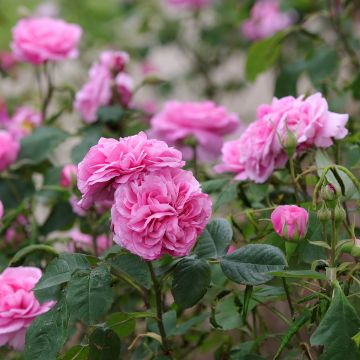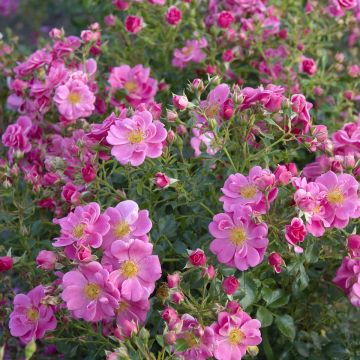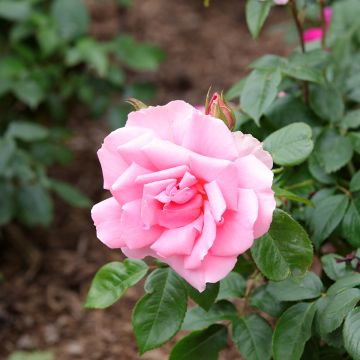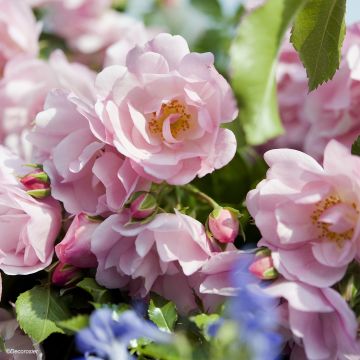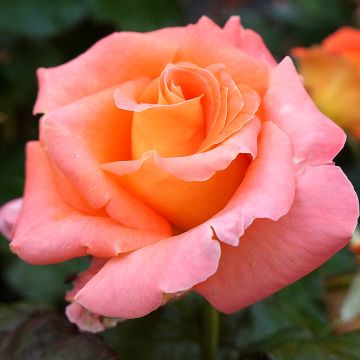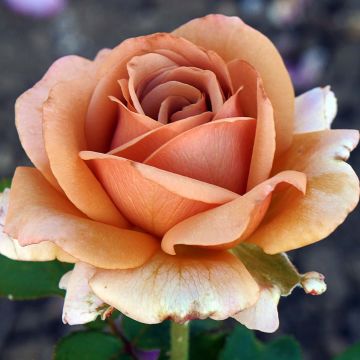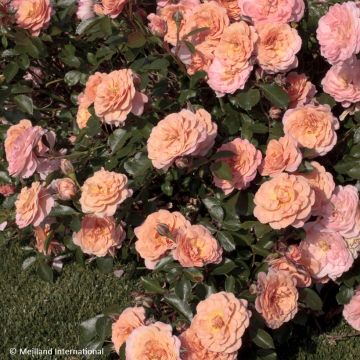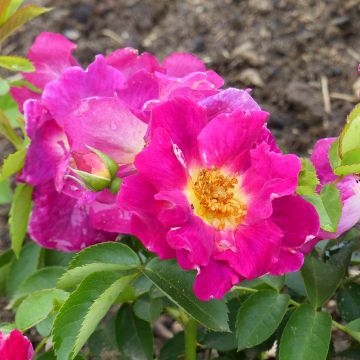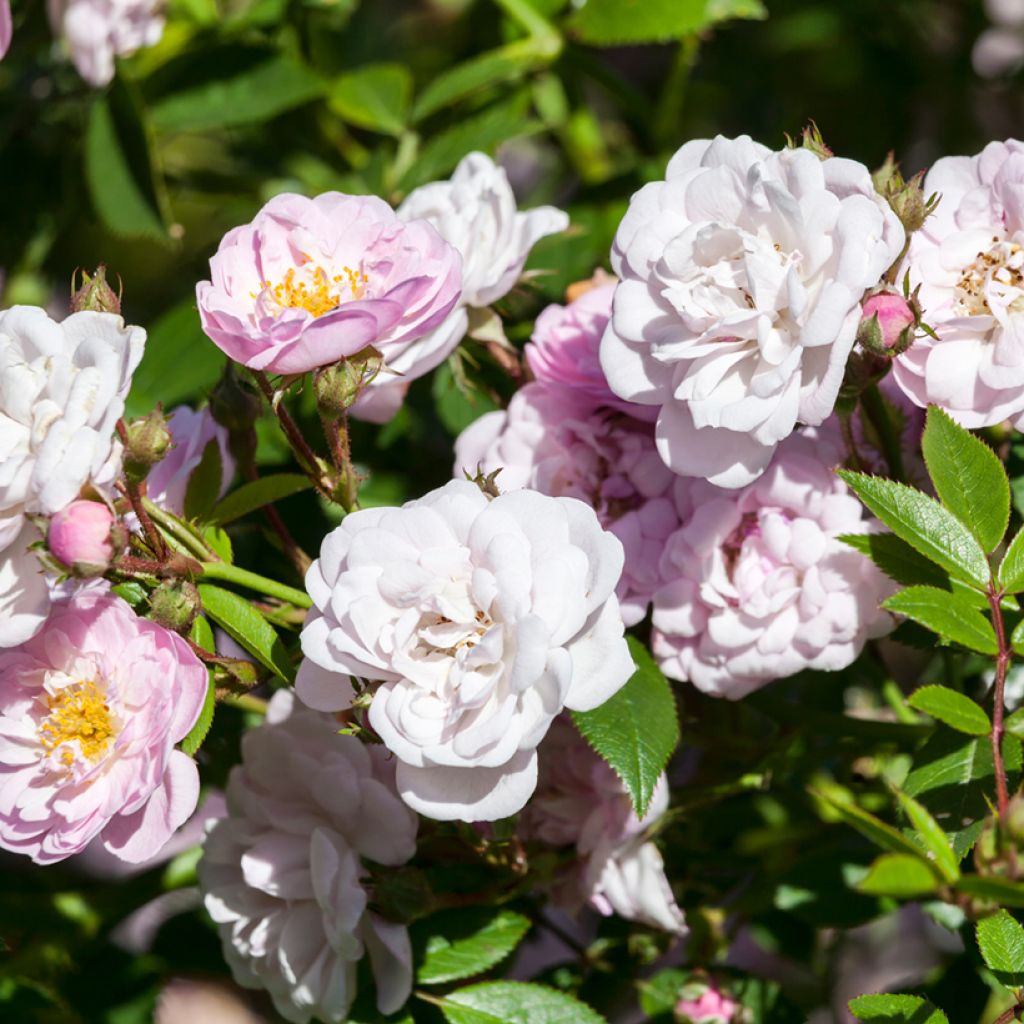

Rosier grimpant anglais Little Rambler
Rosa 'Little Rambler' - Rambling Rose
Rosa Little Rambler 'Chewramb'
Chewramb
Very beautiful plant arrived well rooted, well packaged, bare-rooted, promising for a successful establishment.
Delphine, 11/02/2024
Special offer!
Receive a €20 voucher for any order over €90 (excluding delivery costs, credit notes, and plastic-free options)!
1- Add your favorite plants to your cart.
2- Once you have reached €90, confirm your order (you can even choose the delivery date!).
3- As soon as your order is shipped, you will receive an email containing your voucher code, valid for 3 months (90 days).
Your voucher is unique and can only be used once, for any order with a minimum value of €20, excluding delivery costs.
Can be combined with other current offers, non-divisible and non-refundable.
Home or relay delivery (depending on size and destination)
Schedule delivery date,
and select date in basket
This plant carries a 6 months recovery warranty
More information
We guarantee the quality of our plants for a full growing cycle, and will replace at our expense any plant that fails to recover under normal climatic and planting conditions.

Description
The 'Little Rambler' miniature rambling rose, absolutely charming, is covered in clusters of small pastel roses with a gentle musky fragrance. And the sight of its flowering is repeated from June to October, much to the gardener's delight. It is perfectly complemented by its well-furnished foliage, a beautiful dark green, which remains attractive throughout the season. This rose is a small, resolutely romantic rambler with a nostalgic charm, generous and truly easy to grow. It is a versatile variety, relatively thornless, and well-suited for terrace decoration. It can also be grown as a bush, according to each gardener's preferences.
The 'Little Rambler' or 'Chewramb' rose (also known as Baby Rambler) is a British creation by Christopher H Warner dating back to 1994. The RHS has awarded it in England for its multiple qualities. Its pedigree is as follows: ('Cecile Brunner' x 'Baby Faurax') x ('Marjorie Fair' x 'Nozomi'). This horticultural hybrid is part of the floribunda rose family, with flowers arranged in clusters. Its growth is rather slow for a rose, often taking time to establish itself. The plant develops long, erect, branched, and armed with some sharp thorns. These stems are flexible enough to be trained. This variety will reach between 1.50 m (5ft) and 2.50 m (8ft) in height with a spread of 70-80 cm (28-32in) at the base. Its abundant, dark green foliage, with toothed leaflets, proves to be very resistant to rose diseases under good growing conditions. The rosettes of Little Rambler, measuring 3-4 cm (1-2in) wide, form in June and continue to bloom in waves until October if the soil remains somewhat moist throughout the summer. They are borne on short shoots from the 2nd year in long and dense clusters. They are pale pink, becoming white, and open to reveal a yellow stamen. Their sweet and musky fragrance, wafting in the air, is more noticeable in calm and warm weather. If not pruned, this small climbing rose produces some hips. It is very cold-resistant and tolerates partial shade. Its deciduous foliage falls in late autumn.
'Little Rambler' is truly perfect in a romantic or English-style setting, even when space is limited. It is incomparable for adorning an obelisk or a small fence, but it can also be used as a bush by regularly pruning it to encourage branching and limit its height. Its flowering pairs well with that of a small pink, white, or blue clematis, for example. It is an ideal companion for many flowering shrubs such as deutzias or Abelias. It beautifies small gardens and terraces without demanding much effort from the gardener.
Report an error about the product description
Rosa 'Little Rambler' - Rambling Rose in pictures
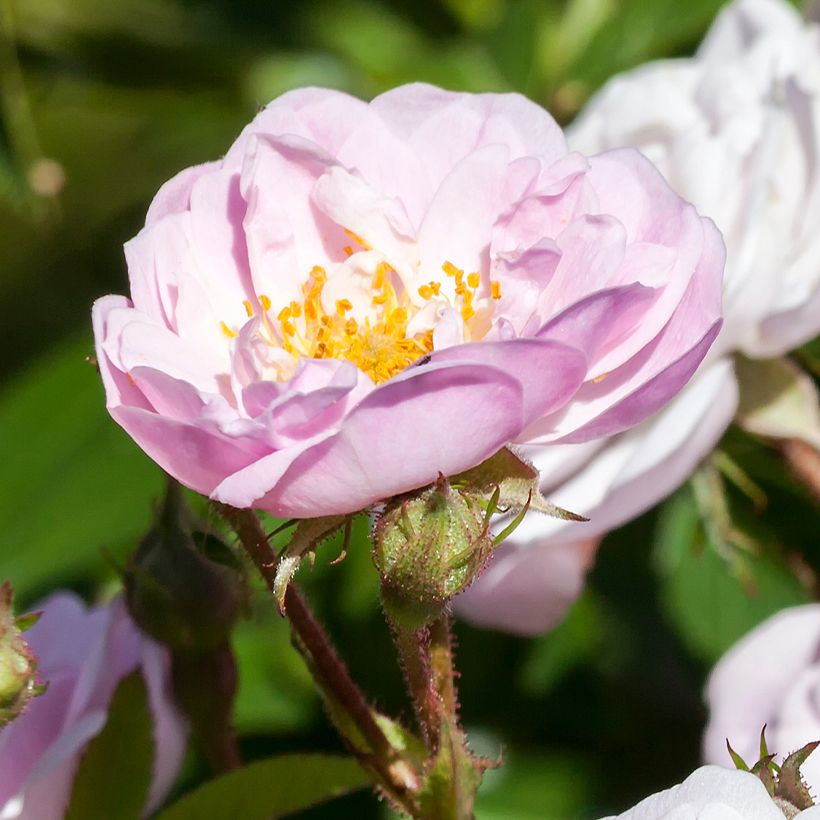

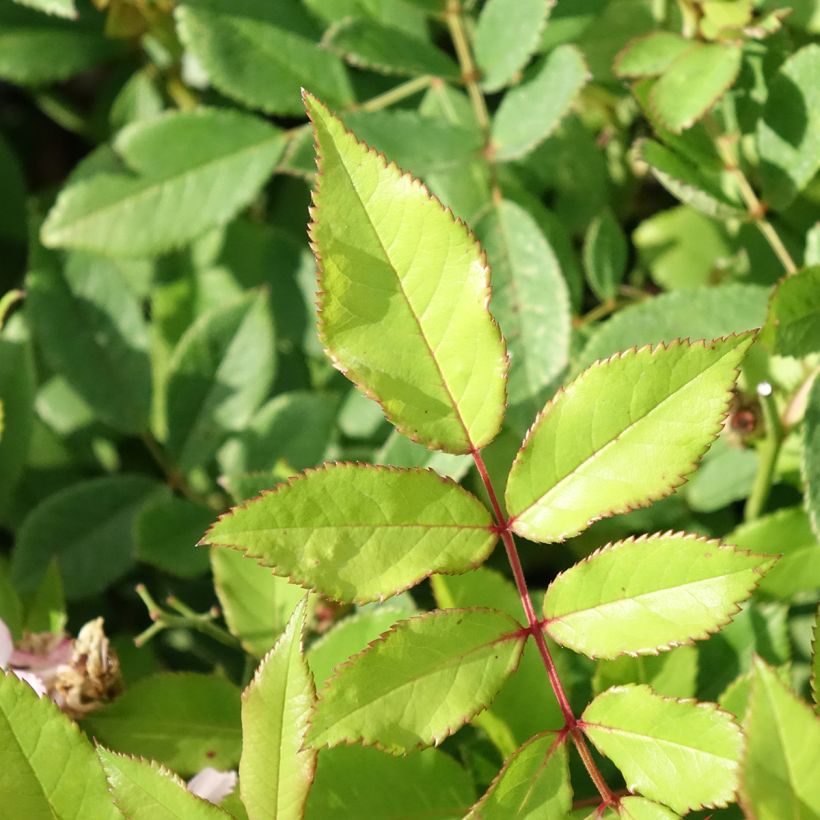

Plant habit
Flowering
Foliage
Botanical data
Rosa
Little Rambler 'Chewramb'
Rosaceae
Chewramb
Cultivar or hybrid
Planting and care
The rambling rose 'Little Rambler' prefers sunny locations but dislikes hot and confined exposures, making it more susceptible to powdery mildew: avoid training it against a south or west-facing wall. A partially shaded exposure is preferable in hot regions. While not fond of excessive limestone, it tolerates it. It thrives in fertile, deep, somewhat moist soils that allow it to reach its full potential—water in case of dry summer to support flowering.
If you want to grow a rose in your garden, you need to prepare the soil well and ensure that it is rich enough. To plant your rose, break down the soil well and add an amendment, such as blood, fish, and bone, at the bottom of the planting hole. After planting, water the rose generously to remove any air pockets. Make sure to water regularly for a few weeks to help the roots grow, especially during the first two dry and hot summers. You only need to prune this rose if you want to control its growth. If you don't want it to spread too much, feel free to reduce its branches.
Planting period
Intended location
Care
-
, onOrder confirmed
Reply from on Promesse de fleurs
Similar products
Haven't found what you were looking for?
Hardiness is the lowest winter temperature a plant can endure without suffering serious damage or even dying. However, hardiness is affected by location (a sheltered area, such as a patio), protection (winter cover) and soil type (hardiness is improved by well-drained soil).

Photo Sharing Terms & Conditions
In order to encourage gardeners to interact and share their experiences, Promesse de fleurs offers various media enabling content to be uploaded onto its Site - in particular via the ‘Photo sharing’ module.
The User agrees to refrain from:
- Posting any content that is illegal, prejudicial, insulting, racist, inciteful to hatred, revisionist, contrary to public decency, that infringes on privacy or on the privacy rights of third parties, in particular the publicity rights of persons and goods, intellectual property rights, or the right to privacy.
- Submitting content on behalf of a third party;
- Impersonate the identity of a third party and/or publish any personal information about a third party;
In general, the User undertakes to refrain from any unethical behaviour.
All Content (in particular text, comments, files, images, photos, videos, creative works, etc.), which may be subject to property or intellectual property rights, image or other private rights, shall remain the property of the User, subject to the limited rights granted by the terms of the licence granted by Promesse de fleurs as stated below. Users are at liberty to publish or not to publish such Content on the Site, notably via the ‘Photo Sharing’ facility, and accept that this Content shall be made public and freely accessible, notably on the Internet.
Users further acknowledge, undertake to have ,and guarantee that they hold all necessary rights and permissions to publish such material on the Site, in particular with regard to the legislation in force pertaining to any privacy, property, intellectual property, image, or contractual rights, or rights of any other nature. By publishing such Content on the Site, Users acknowledge accepting full liability as publishers of the Content within the meaning of the law, and grant Promesse de fleurs, free of charge, an inclusive, worldwide licence for the said Content for the entire duration of its publication, including all reproduction, representation, up/downloading, displaying, performing, transmission, and storage rights.
Users also grant permission for their name to be linked to the Content and accept that this link may not always be made available.
By engaging in posting material, Users consent to their Content becoming automatically accessible on the Internet, in particular on other sites and/or blogs and/or web pages of the Promesse de fleurs site, including in particular social pages and the Promesse de fleurs catalogue.
Users may secure the removal of entrusted content free of charge by issuing a simple request via our contact form.
The flowering period indicated on our website applies to countries and regions located in USDA zone 8 (France, the United Kingdom, Ireland, the Netherlands, etc.)
It will vary according to where you live:
- In zones 9 to 10 (Italy, Spain, Greece, etc.), flowering will occur about 2 to 4 weeks earlier.
- In zones 6 to 7 (Germany, Poland, Slovenia, and lower mountainous regions), flowering will be delayed by 2 to 3 weeks.
- In zone 5 (Central Europe, Scandinavia), blooming will be delayed by 3 to 5 weeks.
In temperate climates, pruning of spring-flowering shrubs (forsythia, spireas, etc.) should be done just after flowering.
Pruning of summer-flowering shrubs (Indian Lilac, Perovskia, etc.) can be done in winter or spring.
In cold regions as well as with frost-sensitive plants, avoid pruning too early when severe frosts may still occur.
The planting period indicated on our website applies to countries and regions located in USDA zone 8 (France, United Kingdom, Ireland, Netherlands).
It will vary according to where you live:
- In Mediterranean zones (Marseille, Madrid, Milan, etc.), autumn and winter are the best planting periods.
- In continental zones (Strasbourg, Munich, Vienna, etc.), delay planting by 2 to 3 weeks in spring and bring it forward by 2 to 4 weeks in autumn.
- In mountainous regions (the Alps, Pyrenees, Carpathians, etc.), it is best to plant in late spring (May-June) or late summer (August-September).
The harvesting period indicated on our website applies to countries and regions in USDA zone 8 (France, England, Ireland, the Netherlands).
In colder areas (Scandinavia, Poland, Austria...) fruit and vegetable harvests are likely to be delayed by 3-4 weeks.
In warmer areas (Italy, Spain, Greece, etc.), harvesting will probably take place earlier, depending on weather conditions.
The sowing periods indicated on our website apply to countries and regions within USDA Zone 8 (France, UK, Ireland, Netherlands).
In colder areas (Scandinavia, Poland, Austria...), delay any outdoor sowing by 3-4 weeks, or sow under glass.
In warmer climes (Italy, Spain, Greece, etc.), bring outdoor sowing forward by a few weeks.






























